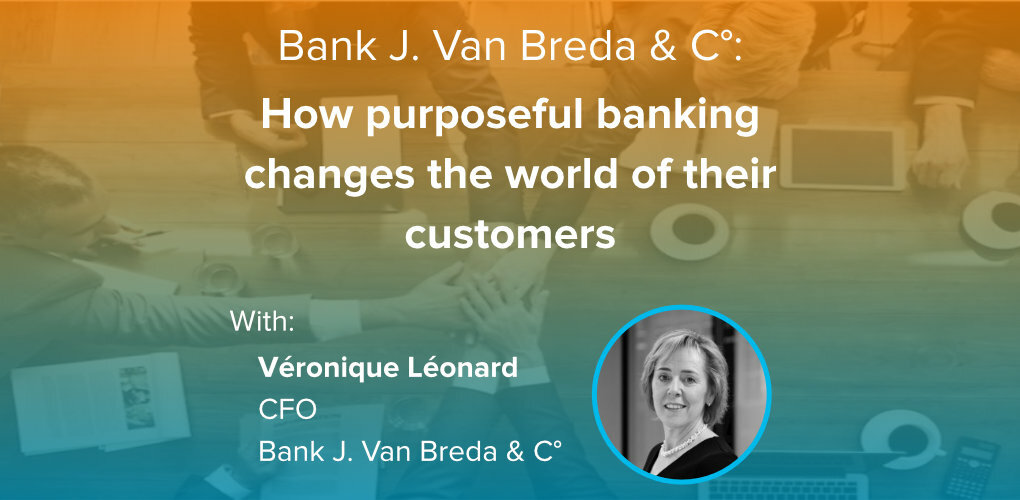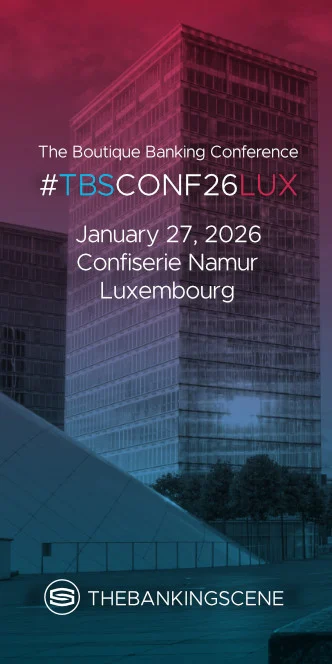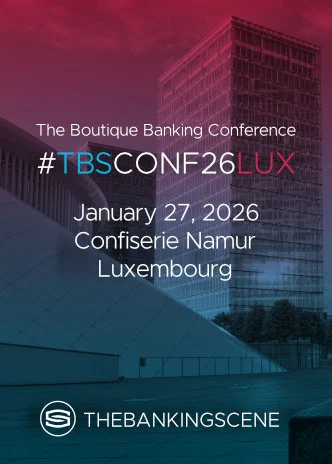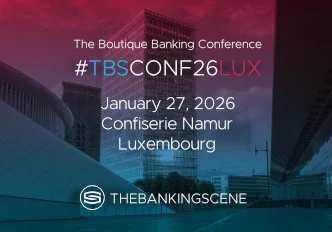
Insights & Opinions
Bank J. Van Breda & C°: How purposeful banking changes the world of their customers
Tue, 23 Mar 2021


The banks that commit to banking for good can be split into two categories: banks that wish to change the world and banks that wish to change the world of their customers. Last week, on March 18, at The Banking Scene Afterwork, I learned that with the rights values, this second category has everything in house to also positively influence the world we live in tomorrow. Our special guest was Véronique Léonard, CFO of Bank J. Van Breda & C°.
Bank J. Van Breda & C° is a 90-year-old Belgian niche bank. They specialise in entrepreneurs and liberal professions, like doctors, lawyers, accountants and consultants. Asking the question what makes them relevant is of vital importance, every day, because their main competitors are the four major banks.
Defining Purpose
Véronique defined purpose as: "answering the why question from the client point of view. It's not who we are. It's not what we do, but it is more why are we relevant for our clients. The only reason they come to us is that they believe or are convinced that we can really add value to them, that we can serve them differently in a way that other bank cannot always deliver. If you look at our bank, the purpose we have is not to sell products. Our purpose is to help our clients make the right financial choices to focus on their ambition, on the practice, on their companies, with a peaceful mind."
To me, the message came in even stronger, as it was the CFO saying it. When I challenged her if there isn't a conflict of interest between serving shareholders vs customers, she replied: "Trust is key. It is all about credibility, your own convictions, your track record and your reputation. We advise our clients for 90 years now. For a small bank, it is vital that the people trust us, not just one account manager or only one team within the bank, because we are in a market dominated by four big banks."
They defined 12 questions, what they like to call 'purpose questions'. By answering these questions for every customer, they are convinced they can make a difference with other banks through their experience and expertise.
As a niche bank, every development requires a careful reflection on whether this adds value to the client. Does it help to answer these purpose questions?
The CFO's key metrics are non-financial
Financial results are important, they defined the viability of a company, but they are the result of other metrics. Véronique's two preferred metrics are a direct consequence of living the bank's purpose day-by-day.
Great place to work: 95% of their talents enjoy working at the bank. Véronique: "Having such purpose and values attracts the right talents, having the right people to serve our clients."
Net Promoter Score (NPS): 65% of customers can be considered promoters of the Bank J. Van Breda & C° brand. They would definitely recommend the bank to other entrepreneurs and liberal professions. With a limited number of 5% detractors, the NPS reaches 60%, the highest in the Belgian banking sector.
Many studies confirm Véronique's statement that purpose-driven companies are those companies that grow much faster than others: "Our customer satisfaction is higher, the employee satisfaction is higher, and we have double-digit growth in commercial volume since 2000, year on year." For her, that is proof that sound financial advice does not have to conflict with long-term shareholder value.
Know your customer, and you know their expectations
Because the bank serves a niche, they know what customers expect, as we learned in the customer experience session back on October 22, 2020. It is all about focus, and this focus explains for a big part the high NPS. Of course, this also implies that certain customers are not welcome.
When we asked her how they do better, in short, the answer was: being more proactive and transparent. The transparency comes back in the clear selection of clients they want to serve, the values they represent, and the limited amount of products, yet sufficiently broad.
Their investment products are managed by their sister bank Delen and apply to an all-inclusive investment policy related to ESG and sustainability. There is no distinction between sustainable and not sustainable. It gives a good choice but not that it stresses the customer because of too much choice.
Proactivity is how they serve and communicate with their customers. Véronique: "We choose to focus on learning the customer needs, to understand them, understand their world, and their ecosystems. When our account manager, for example, is meeting their clients, the first objective is not to sell a product to connect with the client to understand his or her needs and build a real trust relationship in the long term".
Their clients have one account manager, not one account manager per product or per 'life', just one account manager for both the business relationship and the private one. Véronique: "our account managers understand both worlds, which are often very closely related for our clients. Something can be outstanding from a professional perspective but may not be the right one from the private point of view. By having a full view, we can better serve them and develop their professional and private wealth."
Bank J. Van Breda is very clear: "we want to make a difference with the others, and it is not on price. It is really on adding value on advising our clients." Human contact and the expertise of account managers is how they make a difference.
During the crisis, their account managers didn't wait for customers to call. They approached them not to sell products or services but to listen to the customer. Véronique: "having someone who was there just to listen and to reassure was also something that was very much appreciated."
SME banking will never be the same again
When I asked how she felt about Brad van Leeuwen's statement on SME Banking back in May 2020 (SME banking will never be the same again), she agreed that future generations would expect more digitalisation to improve efficiency, to serve their clients better, and develop new products.
“On the other hand”, she added, "I still believe that SME entrepreneurs, who mainly have no CFOs, will need to have a personal service. So yes, digitisation is there and will impact them as they impact us. But I truly believe that not everything will be digitised. For small companies, personal contact will be key, during precise moments of their life."
SMEs want the peace of mind to concentrate on their business without worrying about their banking. Being served by a solid bank with a sustainable business, a strong capitalisation, and high liquidity ratios may not sound that important when everyone talks about digital banking. Still, it all adds to the trust that customers have in their bank.
In that sense, she believes in evolution, a strong evolution, but not a revolution.
Balancing sustainability and inclusion
As sustainability gets higher on the agenda, so do the pitfalls of driving sustainability too far. Bank J. Van Breda has shifted to a more proactive way of looking at sustainability, and they are now in the process of finding how proactive they want to be precisely and how they keep fulfilling their purpose in doing so.
Some industries that are not sufficiently in line with the ESG goals of the United Nations do not get a credit at the bank, which could be seen as exclusion. Luckily the impact for Bank Van Breda & C° is limited because these companies don't match with their client base.
Although… Véronique Léonard is also CEO of Van Breda Car Finance, and their customers are car dealers, not end-customers. Véronique acknowledged that electric and hybrid cars are the future, but she also believes that it is too early for Van Breda Car Finance to start excluding dealers because the cars they sell are not carbon-neutral.
Véronique: "Most of the people making the transition to electric vehicles see that it remains very expensive. We have to make sure that everyone has access to mobility and not only the rich ones, and two other parties first have to move: the government and the car industry.”
The government should ensure a sufficiently dense network of rechargers for future-proof cars. The car industry needs to continue its research and create sufficient scale to make electric vehicles cheaper and accessible for all. A niche bank as Bank J. Van Breda cannot influence these root causes.
But they play their role: in the coming months, every branch will have a charger, and hybrid cars are promoted in their car policy for employees.
Conclusion
For the first time, we welcomed a CFO as a special guest around the table, and I think it was truly refreshing. With all discussions around digital experience etc.… we tend to forget the fundamental importance of financials as part of the trust equation, financials of the bank and the customer.
I loved the idea that even small banks can make a significant difference. They may not aim to change the world, but they contribute to a healthier society and a better future by changing their world.



